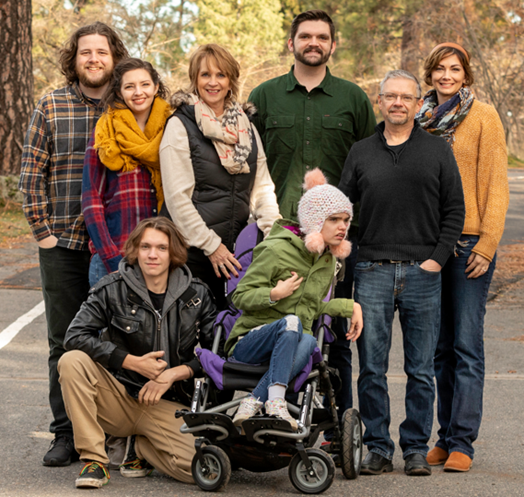
When Olivia was only two months old, she experienced an unexpected spasm while attending church with her family. Initially, they didn’t think much of it, but as the spasms recurred more frequently over the next hour, her family grew increasingly concerned. Knowing this wasn’t typical behavior for an otherwise seemingly healthy baby girl, they rushed Olivia to the emergency room.
At the hospital, doctors quickly recognized something was wrong, consulting a neurologist who recommended genetic testing. Unfortunately, they didn’t get an answer that day—and what they hoped would be a passing episode, turned into a decade long quest for a diagnosis.
In 2016, determined to understand what was causing their daughter’s seizures, Olivia’s family undertook a five-hour journey to see a specialist in Seattle. After running numerous tests, the diagnosis they had been waiting 10 years for arrived: CDKL5 deficiency disorder (CDD), a rare, X-linked developmental and epileptic encephalopathy characterized by early-onset, refractory seizures and severe global developmental impairment.
The diagnosis was devastating. For Olivia’s parents, Rick and Cynthia, this revelation brought both clarity and challenges, including navigating a new reality of regular specialist visits and constant vigilance for signs of an impending seizure. However, it also allowed them to finally begin learning about what their daughter had been experiencing for the past 10 years and understand how they could best support her and other families on the same journey.
At that time, little was known about CDD. Faced with a lack of information and resources, Emily, Olivia’s older sister, took to the internet in search of answers. That is when she discovered the International Foundation for CDKL5 Research (IFCR) and found a community that understood her family’s struggles and provided invaluable support. Since then, Rick has served on IFCR’s board, committed to raising awareness, funding research, and supporting other families affected by CDD.
Today, Olivia, who is now 22 years old, faces her diagnosis with resilience and grace, despite experiencing two seizures a week on average. She’s gone through various stages of capabilities but is now fed through a feeding tube; she can sometimes walk, but usually with assistance. Olivia has her own interests, just like everyone else. She has her own favorite TV shows and books, loves babies, going to the park, and being a “stinker” by pushing her older sister’s buttons to get their attention.
Her journey hasn’t been an easy one, but with unwavering care and support from her family, they stand as her biggest advocates, ensuring she is included in every aspect of their lives. Olivia’s diagnosis didn’t just impact Olivia and her parents—it affected the entire family, including her four siblings, Emily, Amanda, Ethan and Isaac. In 2016, Emily became a certified caregiver, enabling her to provide round-the-clock personal care for Olivia while alleviating the stress on her family, removing the need for external caregivers.
Reflecting on their journey, Rick, Cynthia and their children emphasize the importance of hope in the face of uncertainty. They champion education and awareness, actively involving Olivia in neurology classes at a local university to empower future healthcare professionals with firsthand insights into CDD. The family’s advocacy extends beyond Olivia, envisioning a future where new treatment breakthroughs bring renewed hope to those living with CDD.
In collaboration with families like Olivia’s, advocacy organizations like IFCR, healthcare providers and researchers, we at Marinus are committed to advancing treatments and supporting communities affected by rare seizure disorders like CDD. Together, we strive to transform hope into tangible progress, helping to enable brighter days and a brighter future for individuals like Olivia and their families.